LIMA, Mar 07 (IPS) – This function is a part of a sequence to mark Worldwide Ladies’s Day, March 8.Time is operating out to attain gender equality in Latin America and the Caribbean by 2030. The autonomy of ladies and women within the area is threatened by starvation, poverty and violence, and international locations should urgently step on the gasoline.
For Mar. 8, Worldwide Ladies’s Day, United Nations businesses have targeted on progress made in the direction of the gender targets of the Sustainable Growth Targets (SDGs) of the 2030 Agenda accepted in 2015.
“In our area, solely 25 % of the targets for which info is out there within the SDG monitoring indicators permit us to foresee their achievement by 2030,” mentioned Ana Güezmes, chief of the Division for Gender Affairs of the Financial Fee for Latin America and the Caribbean (ECLAC).
From ECLAC headquarters in Santiago, Chile she informed IPS that 48 % of the targets have seen progress, albeit inadequate, in the suitable route, whereas there was backsliding on 27 %.
The slogan set by the United Nations for this Mar. 8 is “Spend money on Ladies: Speed up Progress”, calling for higher spending by governments to attain SDG 5, which has a worldwide deficit of 360 billion {dollars} per yr.
Within the area, there are each progress and considerations relating to SDG 5, which refers to attaining gender equality and empowering girls and women.
Güezmes mentioned the area is shifting forward by way of strengthening insurance policies and legal guidelines, however that the problem is to speed up the implementation and enforcement of presidency measures so as to enhance the speed of progress in the direction of substantive equality.
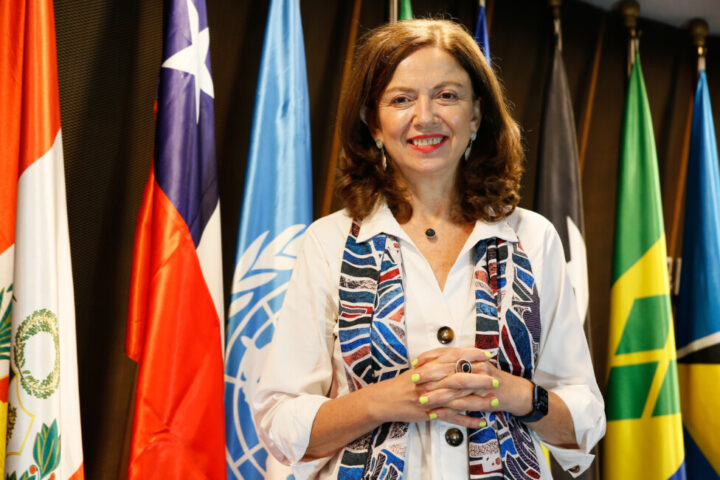
She mentioned enchancment has been sluggish in the direction of different SDG 5 targets, such because the elimination of violence towards girls and women, the eradication of kid marriage, and the popularity and valuation of unpaid home and care work. And he or she added that the area continues to lag behind in know-how for the empowerment of ladies.
Güezmes, a doctor by occupation, and an advocate for ladies’s human rights, a care society and gender equality, has held senior positions within the area at UN Ladies, the UN Inhabitants Fund (UNFPA), the World Well being Group (WHO) and the Pan-American Well being Group (PAHO) over the previous 30 years.
Better inequality amongst poor, indigenous and rural populations
Latin America and the Caribbean, which in 2022 was dwelling to 334.627 million women and girls, 50.8 % of the regional inhabitants based on the World Financial institution, are dealing with a number of crises.
The area was one of many hardest hit by the Covid-19 pandemic and for the final 10 years has averaged a meager 0.8 % annual financial progress price, affecting its inhabitants, which is affected by poverty, meals insecurity and lack of employment, all of which hit women and girls more durable.
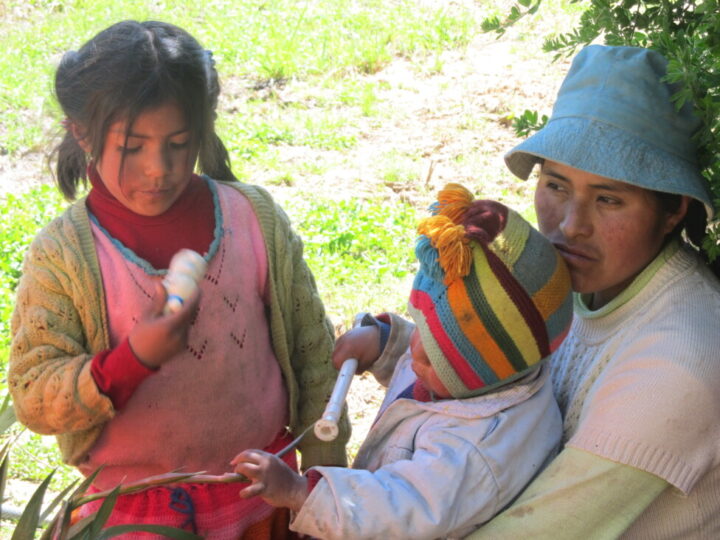
On Feb. 28, ECLAC, in partnership with UN Ladies, offered a research on the state of progress in the direction of gender equality within the area, which highlighted the gaps that hinder the rights of ladies, women and adolescents.
Three out of 10 women and girls reside in poverty and one out of 10 in excessive poverty, with greater charges amongst indigenous, black and rural girls. Likewise, 4 out of 10 girls undergo some degree of meals insecurity and starvation.
Of these over 15 years of age, 25 % haven’t any earnings of their very own, a proportion that rises to 40 % amongst these within the lowest socioeconomic quintile.
Nayda Quispe, from the Peruvian division of Cuzco, is among the 3.4 million rural girls within the Andean nation. She has devoted her life to agriculture and, at 62 years of age, is properly conscious of the tough actuality of rural life for ladies.
“We consistently expertise inequality right here. Ladies work all day, however are usually not paid or acknowledged for his or her efforts, proceed to be pushed to the again burner, and due to financial dependence keep in violent relationships,” she informed IPS throughout a gathering forward of Mar. 8 in Cuzco, the capital of the southern Andean division.
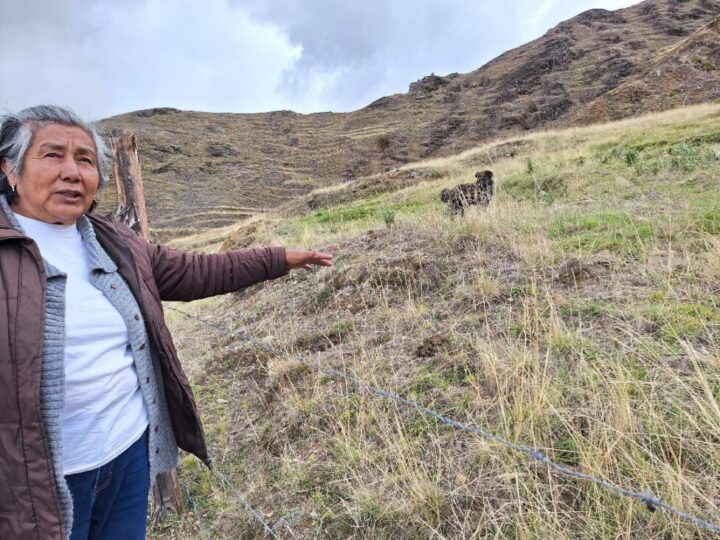
Quispe is among the few girls in her rural setting who managed to proceed her research, graduating as a biologist and dealing for a number of years in her occupation with out shedding her hyperlink with agroecology, to which she is now totally devoted.
She criticized governments for constructing cement works as an alternative of investing in training and coaching for ladies that might permit them to have respectable jobs and earn their very own cash. “So long as this doesn’t change, we’ll proceed to be the forgotten ones as at all times,” she complained.
The ECLAC research exhibits that in Guatemala and Honduras, greater than 50 % and 43 % of ladies, respectively, haven’t any earnings of their very own – among the many highest ranges within the area.
Güezmes burdened the affect this has on girls’s financial independence, a obligatory situation for bodily autonomy and a life freed from violence.
“Gender-based violence towards girls and women happens systematically and persistently within the area, in each the home and public spheres,” she mentioned.
She highlighted the issue of early and compelled baby marriages and unions, which have an effect on one out of each 5 women within the area. Suriname, Nicaragua, Honduras, Belize, the Dominican Republic and Guyana lead with percentages above 30 %. Solely 4 international locations have percentages under 20 %: Costa Rica, Argentina, Peru and Jamaica.
As well as, the ECLAC research stories that on this area, thought-about to have the very best ranges of gender-based violence, a median of 338 girls monthly and 11 per day are victims of gender-based murder, or femicide. In 2022 a minimum of 4050 girls fell sufferer to this crime, 70 % of whom had been of reproductive age between 15 and 44 years.
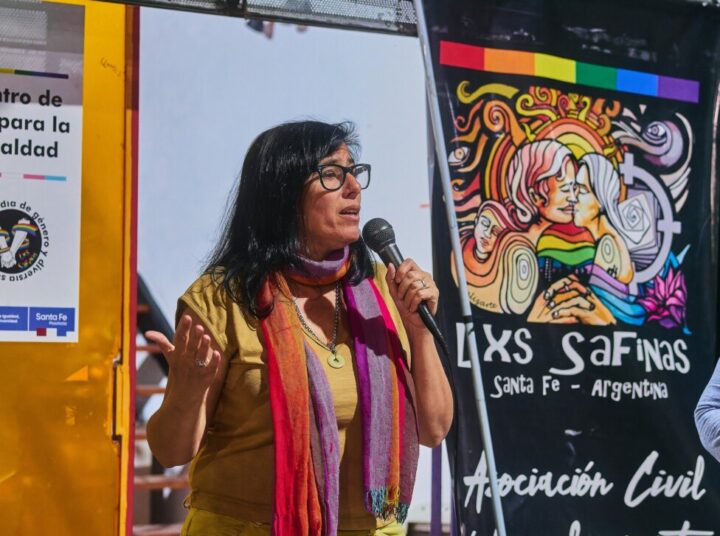
Achievements in danger
The weakening of democracies within the area has had a direct affect on girls’s rights. Achievements in gender institutionality in Argentina, for instance, are in marked decline, together with the suitable to abortion, below the federal government of far-right President Javier Milei, thus affecting progress in the direction of the SDGs.
“Beneath Milei, girls and minorities are closely harassed. The period of rights is over; the suitable wing has arrived to chop again on the advances we had made in sexual and reproductive rights, gender equality and LGTBIQ+ rights,” María Eugenia Sarrias, president of Lxs Safinas, a lesbian feminist group based mostly within the Argentine metropolis of Rosario, informed IPS.
She added from that metropolis that the setbacks in social insurance policies have brought on shortages in soup kitchens and faculty lunches. “They’re attempting to pay the debt with the starvation of the individuals. The liberty they speak about is simply for many who maintain energy and have cash. We, girls and minorities, are dealing with a really large danger,” she warned.
In El Salvador, President Nayib Bukele introduced this month, as his first measure after his landslide reelection, the elimination of all vestiges of the gender perspective in public training, shortly after taking part in a gathering of far-right leaders with former U.S. president and candidate Donald Trump.
There may be additionally nice concern in Ecuador, the place emergency measures are in place to take care of organized crime.
“There are a lot of extra girls who’re impoverished, migrants and victims of violence not solely from their companions but additionally from teams linked to crime,” Clara Merino, coordinator of the Luna Creciente Nationwide Motion of Ladies from Fashionable Sectors, informed IPS.
She argued from Quito that if issues proceed the best way they’re going, it won’t be doable to attain gender equality by 2030. “The finances for training, well being, human rights and girls has been minimize. It’s unimaginable for presidency motion to succeed in the territories the place indigenous and black girls reside, the place starvation, baby malnutrition and migration of younger persons are on the rise,” she burdened.
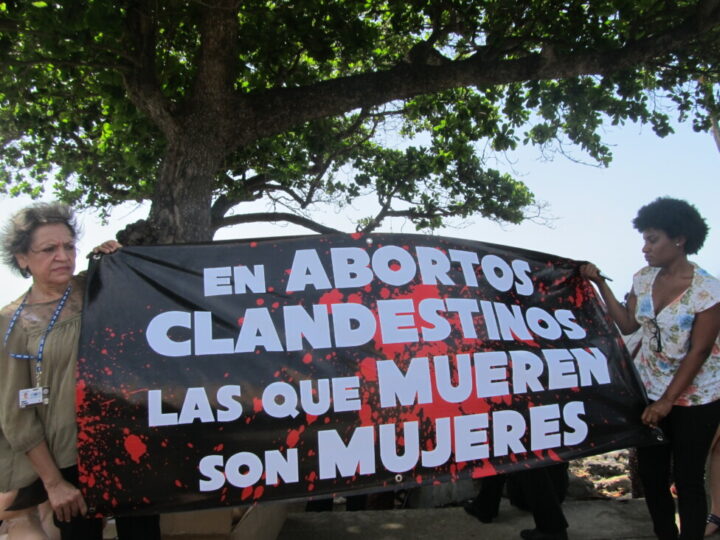
Investing in care
Güezmes mentioned that “within the context of low and risky financial progress within the area, it’s essential to spend money on girls, as a result of there’s a historic debt to their rights and since this sort of spending has the potential to speed up sustainable improvement.”
She gave for instance funding within the care system to interrupt the vicious circle of exclusion and remodel it right into a virtuous one with a number of constructive social and financial results comparable to producing employment, greater earnings and well-being.
“We’re the one area within the final 45 years that has promoted an formidable and complete Regional Gender Agenda that, by means of the Buenos Aires Dedication, says care needs to be seen with no consideration, a necessity and a job. Addressing it in these three dimensions is important to attain the profound change that our societies want,” she underlined.
© Inter Press Service (2024) — All Rights ReservedAuthentic supply: Inter Press Service
